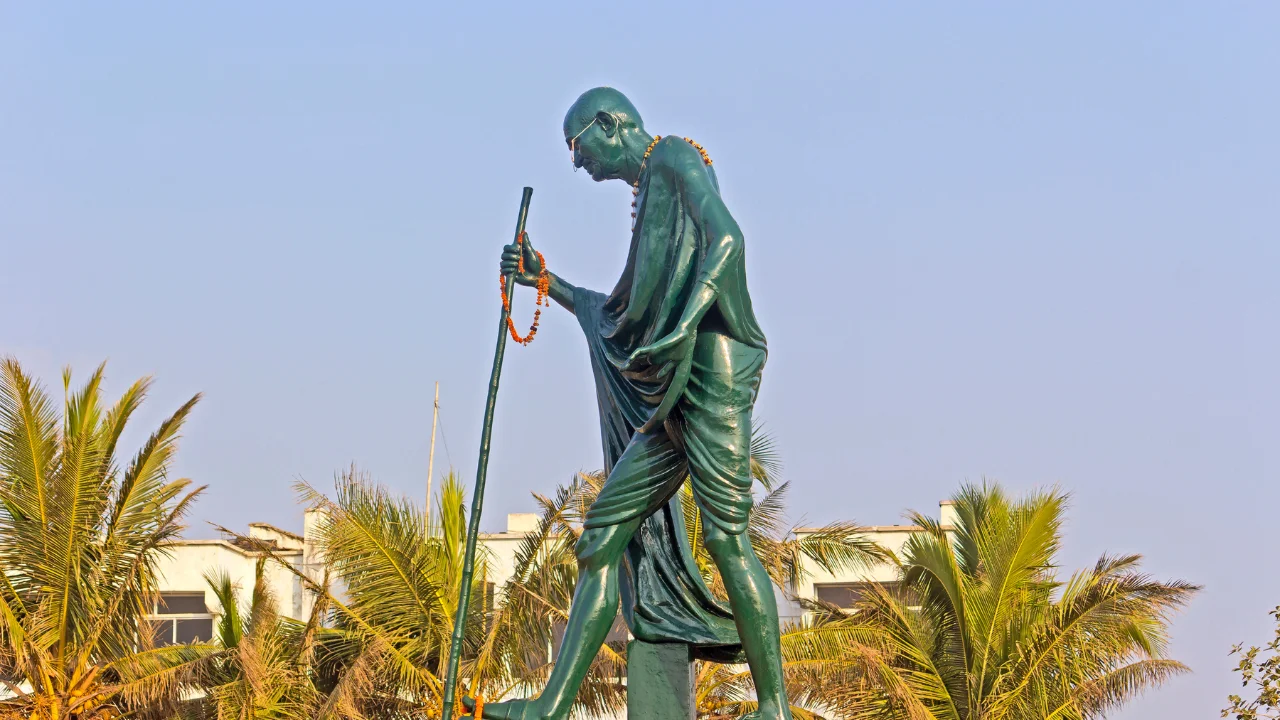International Day of Non-Violence 2025
The International Day of Non-Violence 2025 is observed on October 2nd to commemorate the birth anniversary of Mahatma Gandhi, a global symbol of peace and non-violence. Declared by the United Nations in 2007, the day celebrates Gandhi’s enduring legacy and his philosophy of resolving conflicts through peaceful means, inspiring people worldwide to embrace non-violent principles in everyday life.
History of International Day of Non-Violence
The International Day of Non-Violence has its roots in Mahatma Gandhi’s philosophy of resolving conflicts peacefully and the global recognition of his contributions.
- October 2 marks Mahatma Gandhi’s birth anniversary, symbolizing his lifelong commitment to non-violence.
- The United Nations declared October 2 as the International Day of Non-Violence in 2007 to promote peace worldwide.
- Gandhi’s methods inspired India’s independence movement and influenced civil rights campaigns across the globe.
- The day highlights the power of peaceful protests in creating social and political change.
- It encourages individuals and communities to adopt non-violent solutions in their daily lives.
Enhance your preparation for UPSC exams on topics like social justice and welfare with our UPSC EPFO Mock Test.
Significance of International Day of Non-Violence
The International Day of Non-Violence emphasizes the importance of resolving conflicts peacefully and promoting justice through non-violent means.
- Raise Awareness: Non-violence goes beyond avoiding physical fights; it’s a way to bring positive change in society.
- Proven Way to Make Things Better: Peaceful actions like protests, marches, and campaigns have historically led to meaningful social and political reforms, from the civil rights movement to contemporary initiatives.
- Solving Global Problems: Highlighting non-violent approaches helps address complex global issues, preventing disputes from escalating into violence.
How to Celebrate International Day of Non-Violence
International Day of Non-Violence is a chance to reflect on Gandhi’s teachings and actively promote peace and kindness in our daily lives.
- Learn from Gandhi:
Read about Gandhi’s life and thoughts, focusing on his important quotes like “I would die for many causes, but not kill for any” and “An eye for an eye makes the whole world blind.” - Join an Event:
Attend UN events or local gatherings celebrating Gandhi. Or, use the day to peacefully speak up for something important to you. - Spread Kindness:
Do something nice for someone today, like paying for the person’s toll behind you or leaving a positive note. Make Gandhi proud by spreading happiness.
Key Takeaways – International Day of Non-Violence 2025
International Day of Non-Violence, observed on October 2nd, honors Mahatma Gandhi’s legacy and emphasizes the importance of resolving conflicts peacefully.
- Promotes small acts of kindness and compassion to spread positivity and uphold Gandhi’s teachings.
- Observed on October 2nd, marking Mahatma Gandhi’s birthday, promoting peace and non-violence worldwide.
- Encourages understanding and practice of non-violence as a powerful tool for social change.
- Highlights Gandhi’s philosophy of resolving conflicts without aggression and using ethical methods.
- Inspires individuals to participate in events, read about Gandhi, and engage in peaceful activism.
Looking for IB career opportunities? Check out the newest IB JIO Notification and start your preparation today.
FAQs
Ans. It is observed annually on October 2nd, the birthday of Mahatma Gandhi.
Ans. The United Nations officially declared October 2 as the International Day of Non-Violence in 2007.
Ans. Gandhi led India’s struggle for independence using non-violent methods, making him a global symbol of peace and non-violence.
Ans. The day promotes peace, tolerance, and non-violent conflict resolution worldwide.
Ans. People can read about Gandhi’s teachings, participate in local events or UN programs, spread kindness, or engage in peaceful activism.
Ans. The day emphasizes that non-violent methods are a powerful way to achieve social change and resolve conflicts.
- RBI Grade B Previous Year Papers 2018-24, Download Free PDF
- OICL AO Prelims Result 2026 Out, Download Result PDF
- PNB Apprentice Eligibility 2026, State Wise Vacancy
- RRB NTPC UG Application Status 2026 Out, Check Official Link
- PNB Apprentice Cut Off 2026, Check Expected Cut Off
- PNB Apprentice Salary 2026: Stipend, Job Profile, Benefits

Priti Palit, is an accomplished edtech writer with 4+ years of experience in Regulatory Exams and other multiple government exams. With a passion for education and a keen eye for detail, she has contributed significantly to the field of online learning. Priti’s expertise and dedication continue to empower aspiring individuals in their pursuit of success in government examinations.
